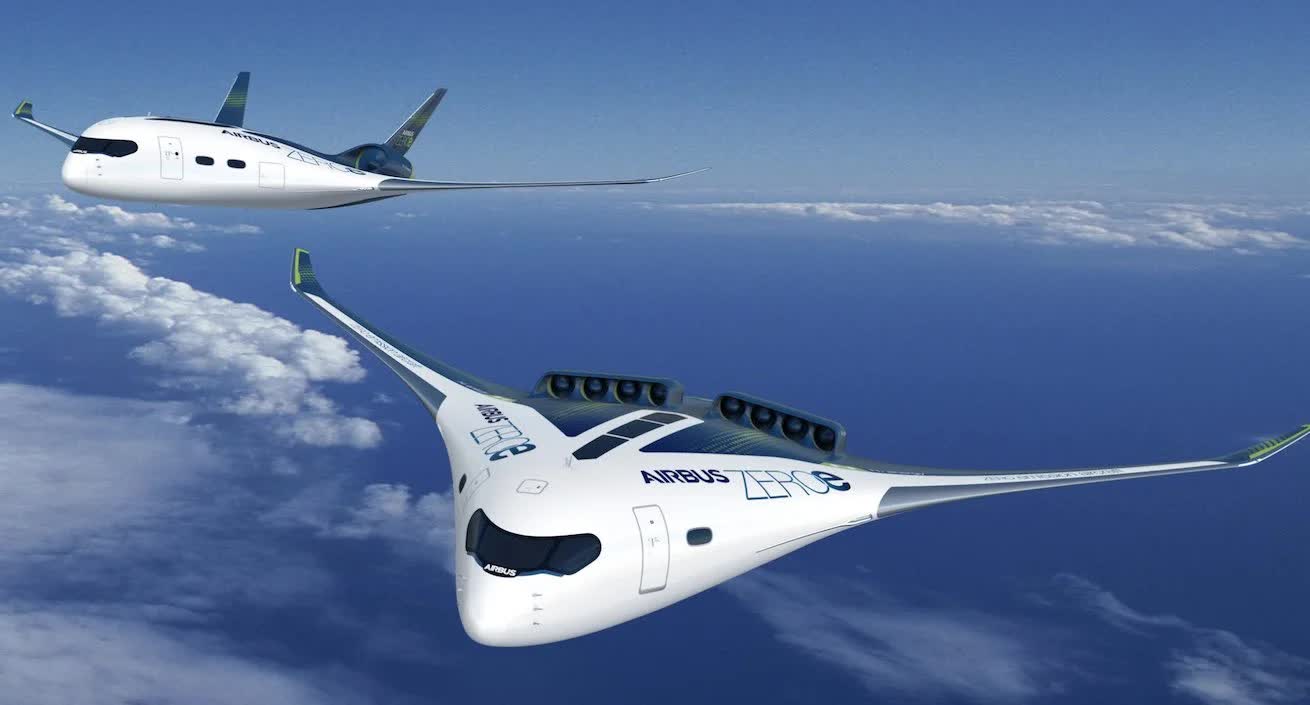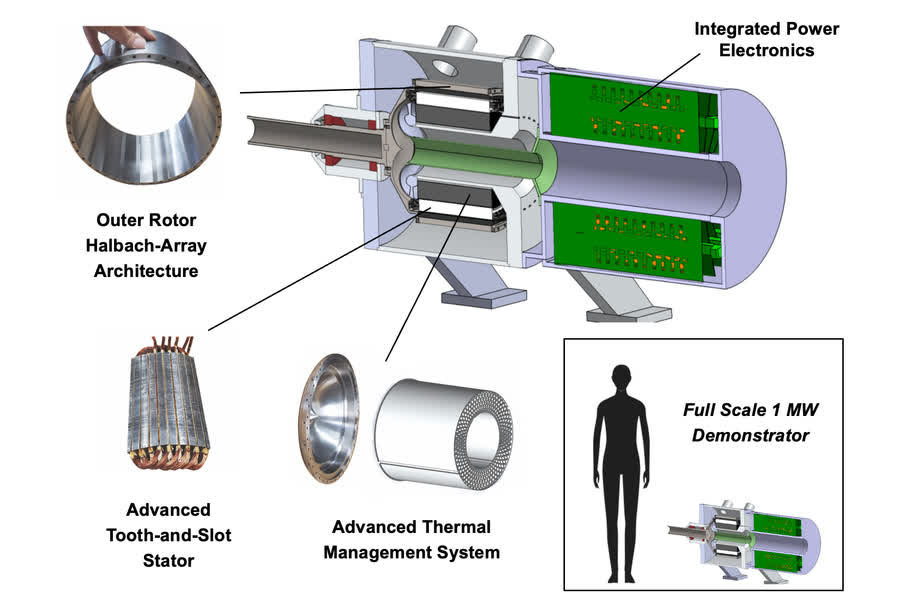Something to look forward to: Hybrid and fully electric vehicles have revolutionized transportation and driven changes in everything from emissions standards to charging infrastructures. While aviation engineers have attempted to bring similar innovation to the skies, they've been faced with numerous size and power delivery challenges that prevent practical large-scale application and adoption. Thanks to recent breakthroughs by a team of MIT engineers, we may soon find ourselves one step closer to large-scale electrically powered air travel.

One of electrically-assisted flight's limiting factors is the supporting technologies required to create enough power for sustained flight without incurring massive penalties to weight and mobility.
Current smaller scale applications use electric motors capable of generating hundreds of kilowatts of power supported by a large number of batteries, greatly increasing the aircraft's weight while decreasing its potential payload. For example, Heart Aerospace's 19-passenger aircraft, the ES-30, is designed to carry approximately 3.5 tons of batteries to support a 250 mile flight.
Engineers from the Massachusetts Institute of Technology have taken a major step toward solving this problem by designing the components to support a 1-megawatt motor capable of electrifying larger aircraft. According to MIT's news release, engineers have successfully designed and tested the major components of the motor and conducted computational analysis to prove that the components are capable of working together to generate one megawatt of power while maintaining a footprint similar to currently available smaller motors.
According to the team's engineers, the new megawatt electric motor could be paired with a battery or a fuel cell to power a plane's propellers on their own by converting the stored electrical energy into mechanical energy. For even larger applications, the electric motor could augment a traditional turbofan jet engine to run as a hybrid propulsion system.

While the breakthroughs are a huge step toward electrifying the skies on a larger scale, the team at MIT aren't the first to try their hand at electric-powered flight. The first electrically powered aircraft, the Tissandier Electric Airship, made its debut on October 8, 1883. Since then, dozens of prototypes, attempts, and small-scale production electric aircraft have graced the skies.
One of the most recent breakthroughs came last year, when Eviation's Alice made its first successful flight as an all-electric passenger jet. Since then, the company has received more than $4 billion in orders, further cementing the industry's demand for an electrically-powered alternative.
Today, our all-electric Alice aircraft electrified the skies and embarked on an unforgettable world's first flight. See Alice make history in the video clip below. We're honored to celebrate this groundbreaking leap towards a more #sustainable future.#electricaviation pic.twitter.com/Q9dFoTPyiB
– Eviation Aircraft (@EviationAero) September 27, 2022
The breakthroughs in power delivery mark an exciting milestone in aviation technology. But with an industry target of net zero emissions by 2050, additional advances in fuels, engines, energy storage, and other supporting systems are needed to meet the carbon reduction target. As of 2021, aviation technologies accounted for more than two percent of global CO2 emissions.